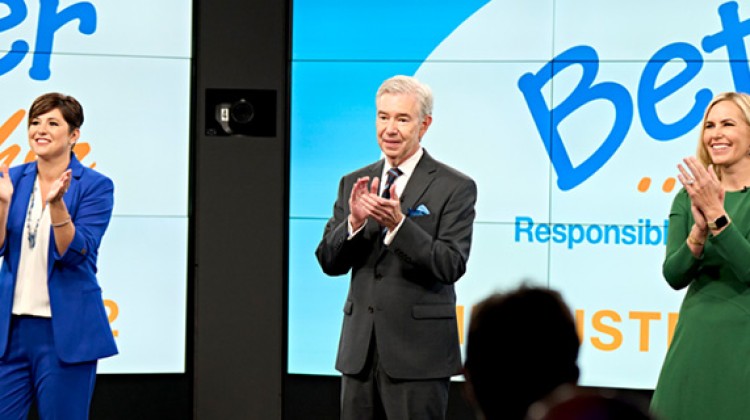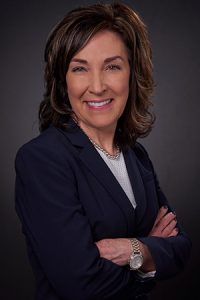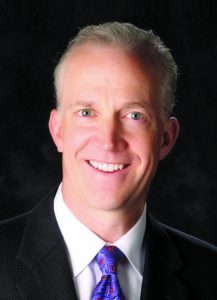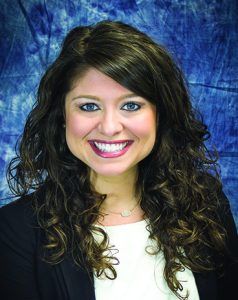Emerson Group event addresses challenges, opportunities

PHILADELPHIA — High inflation and the fear that the only way to fix it is to start a recession are among the concerns facing mass retailers and consumer packaged goods manufacturers in the coming months, according to speakers at The Emerson Group’s recent Industry Day event here. But while the challenges are real, participants in this year’s live and virtual discussions also detailed some of the opportunities they see ahead for continued success and growth.
In keeping with this year’s theme — “Better … together” — some of the most promising endeavors described at Industry Day involved retailers working with suppliers and other partners.
For example, Kroger Health president Colleen Lindholz talked about the ambitious Zero Hunger, Zero Waste initiative, which seeks to end hunger and eliminate waste in the communities Kroger serves by 2025. Kroger is also promoting its Food as Medicine platform, which aims to help customers use healthier food choices to enhance their health and prevent illness.

Colleen Lindholz
Lindholz noted that Kroger chairman and CEO Rodney McMullen participated in the recent Conference on Hunger, Nutrition and Health convened by President Joe Biden. Kroger also hosted a Wellness Festive concurrent with that conference, bringing together a coalition of leaders passionate about improving people’s health through food and nutrition for an industry roundtable discussion and a watch party.
More than 100 of Kroger’s vendors participated in the Wellness Festival. Feeding America and FMI — The Food Industry Association were also there.
“We’ve been on a path for ending hunger for quite some time, and this was just an opportunity for us to also get together with our other partners,” Lindholz said. “Because the one thing we know at Kroger is that what we want to do, we can’t do alone.”
Addressing her audience at Industry Day, Lindholz added: “We’re only better because of the power and the passion of many of you in this room and of our partners throughout the country who will help us get to where we want to go.”
Lindholz was one of several retailers at this year’s Industry Day who talked about what their companies are doing to help meet their customers’ health and wellness needs.
In an interview with Emerson Group chairman, president, and CEO Scott Emerson, H-E-B chief operating officer Martin Otto detailed some of the big problems he thinks the country faces. They include the state of its public education system; significant wealth and income inequality gaps that are damaging the country’s social fabric; and a ballooning national debt. And now inflation, which Otto said he doesn’t expect to go away anytime soon.

Martin Otto
Otto argued that improving America’s current healthcare system, which is characterized by high costs and mediocre results relative to other countries, could represent an essential part of the solution to those problems, by improving access to healthcare while lowering its cost, freeing money to address other needs. He added that retailers, having shown their value during the COVID-19 pandemic, could play a major role.
“I think as individual companies, we could do things, and many people in your audience are,” Otto told Scott Emerson. “We’re certainly doing some things. We’re building primary care clinics. We’ve gotten registered dieticians offering advice, and we’ve got pharmacy teams that offer life-changing services. My hope is that we’ll be able to pull all these things together in a way that can really make a difference, improve the quality of healthcare and take costs out of the system.
“So what I’m optimistic about is that many of us are focused on this in a productive and a goal-oriented way where we’re seeking to solve society’s problems, and also build a business out of it.”
Other retailers speaking at The Emerson Group’s Industry Day event shared the ways they are providing healthcare solutions that potentially cut costs while improving outcomes and access.

Staci Cochran
Silvia Azrai Kawas and Staci Cochran of Walmart described what their company is doing to make healthcare services more readily available to their customers.
“The goal for us in the future is to continue to create access,” said Staci Cochran, who is senior director of health and wellness new business development at Walmart. “We are uniquely positioned at Walmart. We have 4,600 pharmacies, and we now have 28 health clinics in four states with expansive —primary care and urgent care, and also labs, x-rays, diagnostics, even full dental services. We also have the exciting launch of our Walmart Virtual Healthcare, which offers 24/7 telehealth services. And with 80% of Walmart’s stores being located in rural America, this is also exciting for access. And, of course, we have 3,400 vision centers. And so, we’re excited about the ecosystem that we continue to grow, but we’re more excited about the health outcomes that can come as a result of this access.”
Azrai Kawas added that the pandemic has increased consumers’ interest in being proactive about their health and wellness.

Silvia Azrai Kawas
Our customers are looking for preventative, affordable, accessible solutions to manage their health,” she said. “And we have a role to play in that. Not just with our O-T-C merchandising, which is a big business and one in which we’ve earned a lot of trust with our customers. But it’s also because they have the opportunity to interact with Walmart, whether they choose to walk in and engage with the pharmacist in our stores or with our optical or hearing businesses. They can also actually walk into one of our healthcare clinics and be served by a physician. That’s just clear, affordable access. It’s important for us to be able to connect all these dots for our customers.”
Another retailer who participated in Industry Day was Musab Balbale, senior vice president and chief merchant of CVS Health. Balbale was asked what sets CVS apart from other retailers in the health and wellness space.

Musab Balbale
“It’s a really great question and I think there are two parts to it,” he responded. “The first is CVS retail is within the larger healthcare enterprise of CVS Health. As part of the larger enterprise, we have the ability to bring together all parts of our enterprise — whether it is the insurance part of our business, or certainly the pharmacy, the clinics, or our upcoming entree into home healthcare —and bring all those pieces together with the front store to create a more holistic health and wellness solution for our customers. The second part of your question is I think about CVS retail itself. We’re at this unique intersection between, effectively, specialty retail which drives consumer engagement on the currency of authority, but also mass retail, which drives consumer engagement on the currency of convenience. The intersection is really powerful.”
Balbale noted that CVS stores don’t have the breadth of assortment offered by their big-box competitors. “But our 9000 locations, the proximity to the customer, the ease in which somebody can walk into our stores and walk out, allows us to really compete on time in a way that is unmatched by others in retail.”
CVS plans to build on that strength by simplifying its assortment and other aspects of the customer experience so that shoppers can find the products and other solutions they need as quickly as possible, Balbale added.
Walgreens is also focused on convenience as a strategic advantage, according to Luke Rauch, who is senior vice president and chief merchandising officer at Walgreens. (He also serves as chief of staff to Walgreens Boots Alliance CEO Roz Brewer.) He told a story about being sick with COVID during the early days of the pandemic and, not wanting to risk exposing anyone else by going to a store for over-the-counter drugs to help alleviate his symptoms, he opted to have an order delivered to his home.

Luke Rauch
“From the time I pressed the submit button in our app, to the time that product was on my doorstep, was 14 minutes and 47 seconds, Rauch said. “And that was some Gatorade, some cough cold medicine, and some cough drops, all in under 15 minutes. Nobody can beat that. So if we can deliver that, or the same thing if you want to pick it up in the store, and put that on top of a strong price proposition, and a very trusted supply chain and a trusted source of quality goods, I think that’s how we win.”
Rauch ended his remarks with a return to the idea of partnerships, and the theme of “Better … together.”
“I would just like to say a huge thank you, first and foremost, to The Emerson Group,” he said. “You have been an awesome partner. And thank you to all our supplier partners out there. The last two and a half years have been unprecedented in their challenges. And I know we hold our supplier partners to a high standard. And I really appreciate how you all have delivered on that.
“And I would say I think we’re really well-positioned to win. I talked about that 15-minute thing. Imagine if we can put together the trust of Walgreens with the great products that you all and our other supplier partners bring in, with a convenience advantage that nobody else can touch, under the umbrella of healthcare. Nobody can do that, in my opinion, better than Walgreens can. So, my message is, please continue to support us, please continue to lean into us, and we’re super excited about the road ahead.”




You must be logged in to post a comment Login